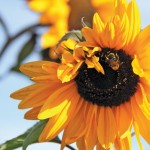What does farming look like on the other side of the globe? In some ways, it looks the same as any farm in Western Canada, but in other ways it’s quite different. In this second interview, Andrew Morrison, a farmer in Victoria, Australia, talks frankly about how he’s managing herbicide resistance and why he adopted […] Read more











